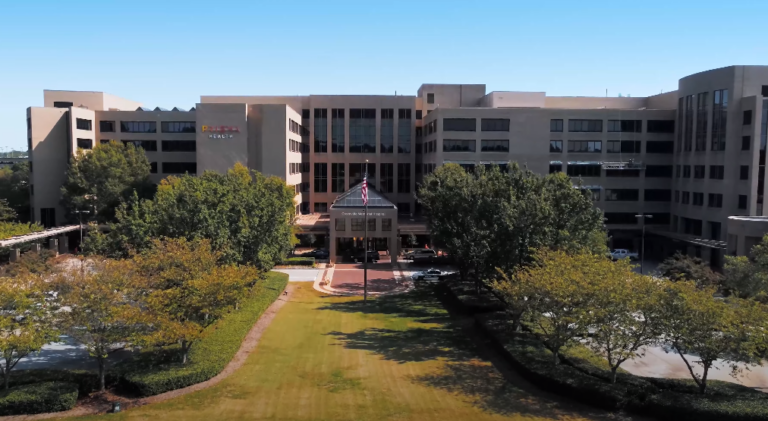Greenville, SC, has grown into one of the fastest-growing cities in the Southeast, attracting businesses, job seekers, and investors alike. With a strong economy driven by a diverse mix of industries, a thriving labor market, and continuous economic development, the city offers many opportunities for residents and businesses.
Key Economic Sectors and Industries
Manufacturing
Greenville has a long history in manufacturing and remains one of the top hubs in the Southeast for advanced manufacturing. Some key areas include:
Automotive Manufacturing: BMW's massive plant in nearby Spartanburg County is a major employer and economic driver.
Aerospace & Aviation: Companies like Lockheed Martin and GE Aviation have a strong presence.
Plastics & Advanced Materials: Many companies specialize in plastics, composites, and innovative materials.
Technology and Innovation
Greenville is increasingly being recognized as a growing tech hub. The city is home to a growing number of startups and established tech firms in fields like software development, cybersecurity, and engineering. Organizations like NEXT Innovation Center provide support for tech entrepreneurs.
Healthcare and Life Sciences
With major hospital systems like Prisma Health and Bon Secours St. Francis Health System, Greenville has a strong healthcare industry. This sector includes hospitals, biotech firms, and medical research.
Finance and Business Services
Greenville has seen growth in banking, insurance, and professional services such as accounting and consulting. Many businesses are choosing Greenville as a regional headquarters due to its business-friendly environment.
Logistics and Distribution
Thanks to its prime location along major highways (I-85 corridor) and proximity to the Inland Port in Greer, Greenville has become a key player in logistics, warehousing, and supply chain operations.
Tourism and Hospitality
Greenville’s charming downtown, parks, restaurants, and events attract visitors year-round. The tourism industry supports jobs in hotels, restaurants, and entertainment venues.
.jpg)
Employment and Labor Market
Greenville boasts a low unemployment rate compared to the national average, thanks to its diverse economy. The city has maintained an unemployment rate between 2-4% in recent years, reflecting a strong and stable labor market. A significant advantage of Greenville’s job market is the wide range of employment opportunities. There is a healthy mix of white-collar professions in engineering, finance, and healthcare, as well as blue-collar jobs in manufacturing and logistics. Additionally, Greenville’s lower cost of living compared to larger metropolitan areas makes it an attractive destination for job seekers looking for both career growth and affordability.
Several major employers help drive Greenville’s economy, providing thousands of jobs across various industries. BMW Manufacturing plays a vital role in the automotive sector, while Prisma Health and Bon Secours St. Francis Health System lead the healthcare industry. Companies like GE Power, Michelin North America, and Fluor Corporation contribute to the engineering, energy, and construction sectors.
With a median household income of around $65,000, Greenville offers competitive wages in high-demand fields like IT, finance, and healthcare, while industries such as hospitality and retail tend to offer lower pay. Greenville’s job market remains strong, and the steady population growth ensures continued demand for skilled workers.

Economic Development and Growth
Greenville’s business-friendly environment has been a key factor in its economic expansion. With low corporate tax rates (5%), attractive incentives, and workforce training programs, the city actively encourages business investment. Entrepreneurs also benefit from strong support networks such as the NEXT Innovation Center and the Greenville Chamber of Commerce, which provide resources, mentorship, and networking opportunities. These initiatives have helped Greenville attract both large corporations and innovative startups, creating a well-balanced economy.
Significant infrastructure projects are fueling Greenville’s continued growth. The expansion of downtown has led to the development of new office spaces, hotels, and mixed-use properties, further enhancing the city’s appeal to businesses and residents. Improvements in transportation, including road expansions and upgrades at Greenville-Spartanburg International Airport, have strengthened connectivity within the region. Additionally, Greenville is investing in renewable energy and sustainability initiatives, positioning itself as a leader in green business practices.
With a steadily increasing population, Greenville’s housing market remains strong. New developments are emerging to meet the growing demand for homes, while rising property values reflect the city’s desirability. Although home prices have increased in recent years, Greenville remains more affordable than many other cities in the Southeast. The combination of economic growth, business-friendly policies, and infrastructure investments makes Greenville a prime location for businesses, workers, and investors looking for long-term success.
Relocating to Greenville, SC?
Receive a Complimentary Greenville Relocation Guide. This relocation guide will assist you in your personal research. It includes interesting general tidbits about the Greenville area and Home Buyer’s Guide to Relocating to Greenville. Please fill in the form below and request your FREE relocation magazine.






